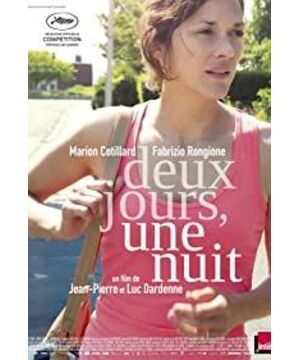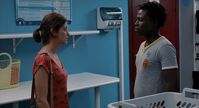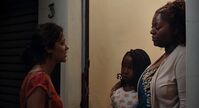As soon as Sandra recovered from depression, she learned that she was facing a voting decision from her coworkers: whether to "cut her in exchange for an extra 1,000 euro bonus per person" or "leave her but no bonus". Sandra is the mother of two children and has to support her family, so she went door to door for two days and one night to beg her workers to vote for herself so that she could keep her job. At first, several friends who were close to her happily agreed to her request, and even took the initiative to stand up and support her. With such motivation and her husband's selfless support, Sandra embarked on her journey of seeking help. After that, things have not been smooth sailing. Some people rejected her because of family difficulties and urgently needed the money, and some colleagues were strongly opposed by their families because they were willing to help her, and even experienced fierce physical conflicts. In various scenes, Sandra was both anxiously lost and heartbroken to understand. Although she was disappointed and sad every time she was rejected, she did not owe anything, and every friend's answer made her feel unbearable: after all, her friends would suffer losses because of her, which made her quite guilty. In the end, when the supervisor retained her as a condition of expelling others and staying, she resolutely chose to refuse. It happened to be the phrase in the film, "Let’s think from my perspective." She managed to empathize. Let yourself be reborn and come out of depression. Although the film is touching, the simplicity of the plot and the flat narrative technique weaken the appeal to the audience, which is also a pity.
View more about Two Days, One Night reviews










